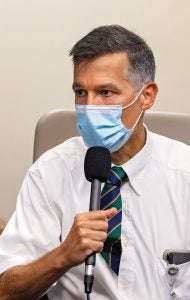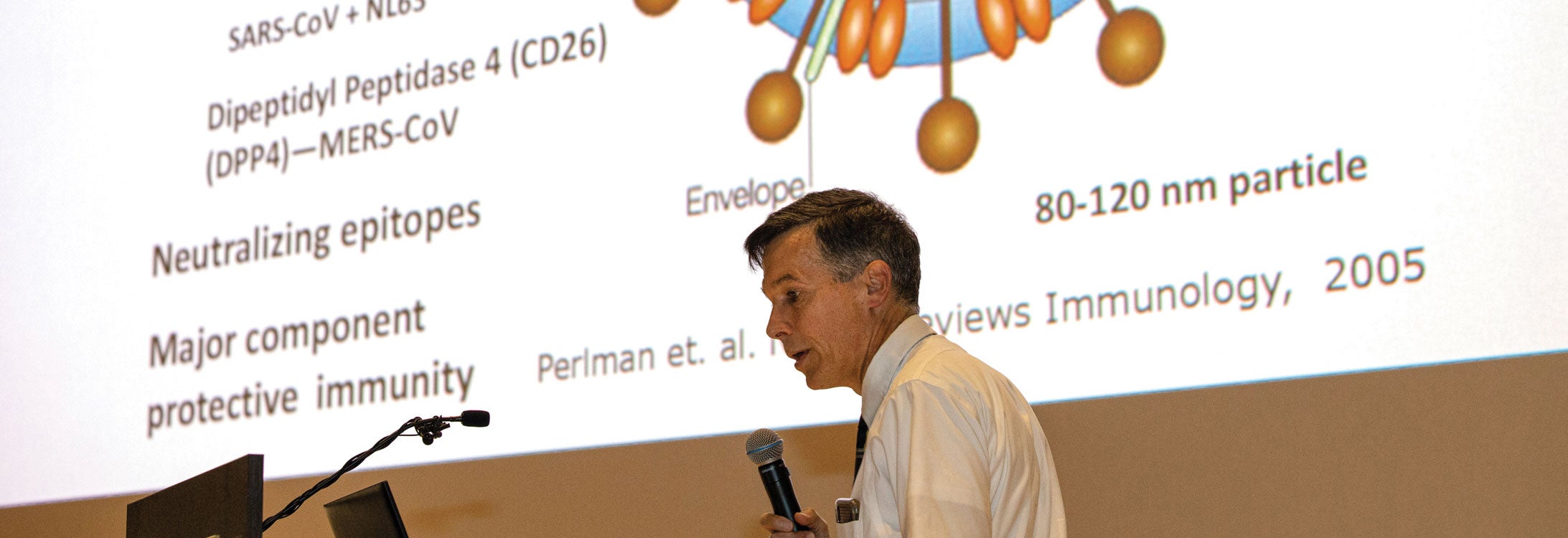ECU-tested COVID-19 treatment receives authorization
An ECU infectious disease specialist at Vidant Medical Center was among the first to trial a COVID-19 antibody treatment that in November was granted an emergency use authorization by the U.S. Food and Drug Administration.

Cook speaks during a COVID-19 podcast.
Dr. Paul Cook, chief of the Division of Infectious Diseases at the Brody School of Medicine, began enrolling patients in August in the clinical trial investigating the monoclonal antibody treatment now named bamlanivimab and developed by pharmaceutical company Eli Lilly.
Early studies showed a statistically significant reduction in the need for patient hospitalization compared with a placebo.
“What it means is that we’re at the forefront — it doesn’t mean that we’re the only place in town,” Cook said. “I’ve gotten emails about it asking, ‘How are we going to do this?’ and, ‘Where is it going to be done?’ We already know how to do it because we have already been doing it. We’ll probably do it at our infusion center, which we already have in place.”
Cook added that the early supply of the treatment is limited, so providers will have to be judicious in determining patient eligibility.
Bamlanivimab targets the spike protein of SARS-CoV-2, designed to prevent the virus from attaching and entering human cells. It is intended for higher-risk patients who have been recently diagnosed with mild-to-moderate COVID-19. It is one of six drug and biological products that have received the emergency use authorization from the FDA. Veklury — also known as remdesivir — which has also been tested at ECU, became the first and thus far only fully FDA-approved treatment for COVID-19 on Oct. 22.
Once the initial clinical trial showed bamlanivimab, also known as LY-CoV555, to be effective in treating high-risk COVID-19 patients in the early stages of their infection, the trial was expanded. Cook, his colleagues at ECU and other sites around the nation are testing a combination treatment of bamlanivimab and an additional SARS-CoV-2 neutralizing antibody called etesevimab, or LY-CoV016. The treatment is intended for higher-risk patients who have been recently diagnosed with mild-to-moderate COVID-19.
Cook said the combination therapy is similar to the one used to treat President Donald Trump when he was diagnosed with COVID-19.
“We think that these double monoclonal antibodies are probably better than one,” Cook said. “We don’t know that for sure, but that’s why we do trials.”
